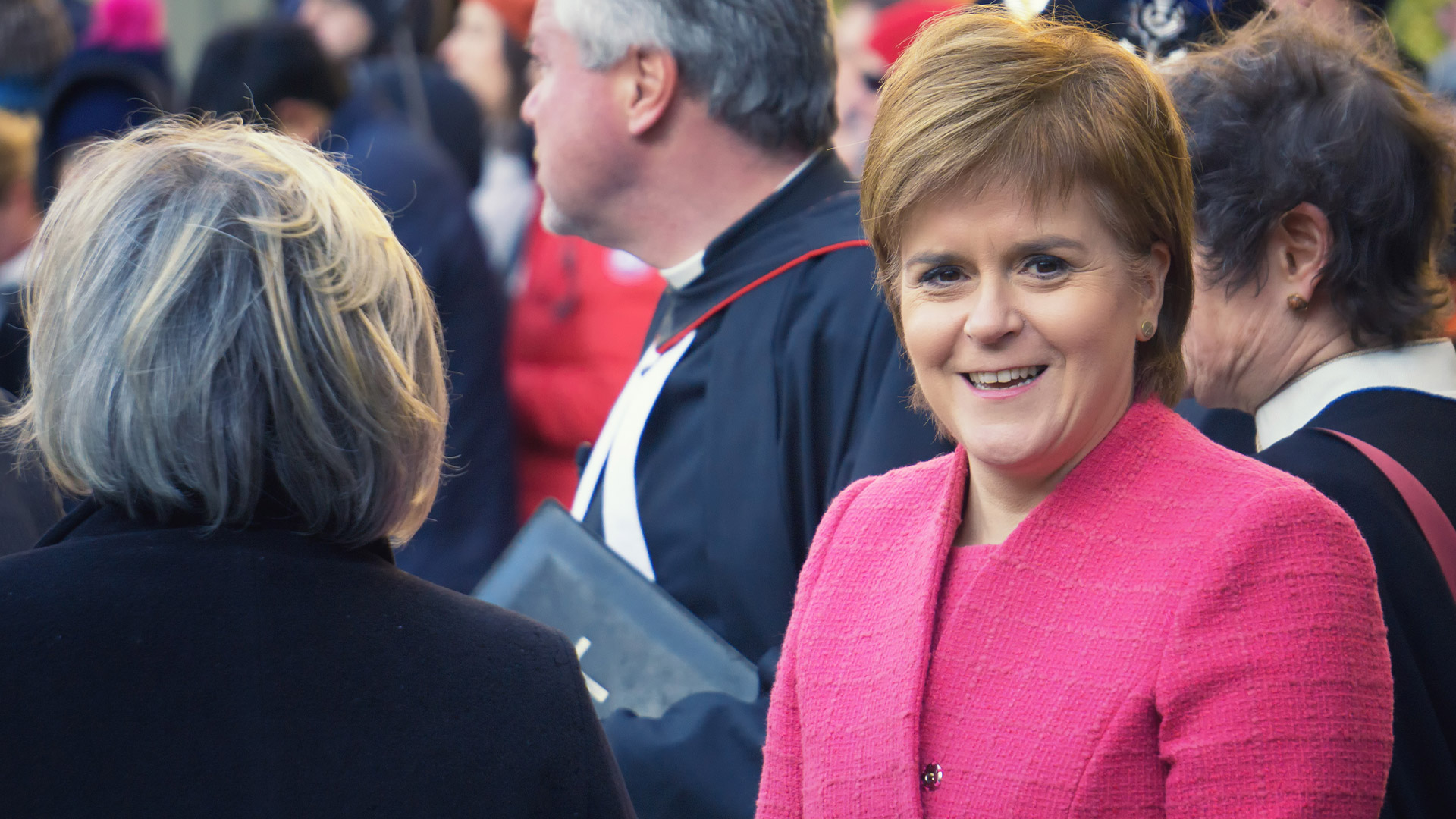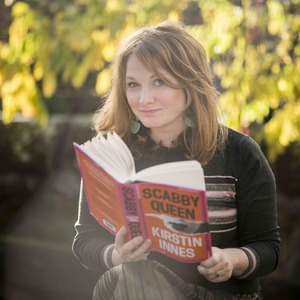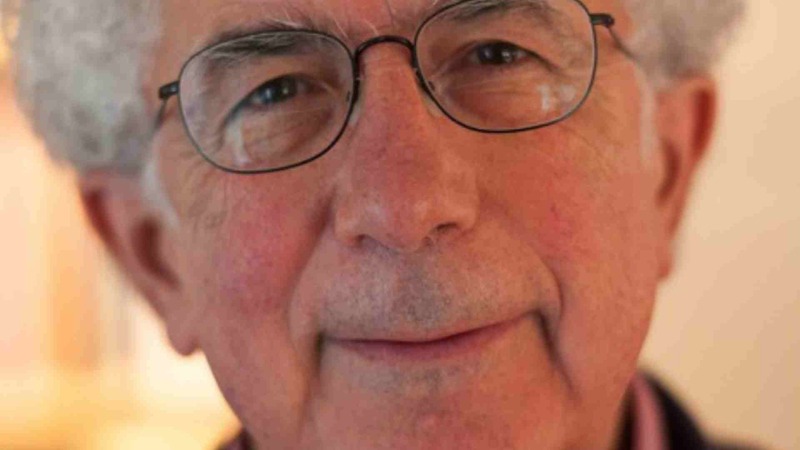You are viewing your 1 free article this month. Login to read more articles.
The Sturgeon factor
Scotland’s outgoing first minister made a big difference for this author, and the trade will be poorer for her loss.
July 2020, mid-lockdown, one week before my second novel, Scabby Queen, launched. My phone buzzed a notification: Nicola Sturgeon is now following you on Twitter. I shrugged it off, assuming a staffer had put together a list of Scottish authors and had logged into the First Minister’s account to make sure they were all followed; this hunch proved wrong at 8.30 a.m., when the First Minister herself actually slid into my DMs, as it were. It was the sort of message from a reader that any nervous author on the eve of publication would want to frame — hugely complimentary, engaged with both the subject matter of the book and wider traditions in Scottish literature, thoughtful and encouraging. Given the source — well, I think I just handed the phone to my partner and squealed.
Nicola Sturgeon, throughout her premiership, has established herself firmly and famously as a reader. As she mentioned in her resignation speech this week, in the role of First Minister, “there is virtually no privacy. Even ordinary stuff that most people take for granted, like going for a coffee with friends or for a walk on your own becomes very difficult.” In that absence, and at the risk of assuming that a six-message-long online conversation with a person I don’t know has given me a huge insight into their character, she has turned to books – largely fiction. She mentioned in this conversation that reading was her one outlet during a time in which, unlike leaders in other parts of the country, she was working every single day.
At 5.22 p.m. that day, she tweeted a public endorsement of the book. I’d been aware of her book recommendations on Twitter before but I’d had no idea of the effect it would have. I’ve looked back through the screengrabs my partner insisted I take of how quickly the Amazon ranking was moving up: at 23.38, Scabby Queen was at 34 in Political Fiction, 394 in Literary Fiction, 534 in Women Writers & Fiction and 1,616 in Books overall; by 06.17 a.m. the next day we’d hit 86 in Literary Fiction, five in Political Fiction, 114 in Women Writers & Fiction and 196 in Books overall. These numbers might not seem incredible for a Hilary Mantel or a Sarah Hall, but I was a midlist writer with her first book out on a major imprint, not backed by a large marketing campaign, and press interest had been Scottish-only. By September, my agent had sold the theatre, film and TV rights to the book and the hardback was being reprinted, with a new cover including Sturgeon’s tweet. In December there was another major sales bounce connected to a photo she’d tweeted of her favourite books of the year; the image was reported as "Nicola Sturgeon’s list" in the same way that Barack Obama’s now-annual list of book recommendations is.
Her detractors will never bring themselves to admit it, but the reason Sturgeon’s book recommendations carry so much weight is that she’s trusted and admired for her decency.
Lovely as all this was for me and my publisher, a leader who reads fiction doesn’t just have positive knock-on effects for the authors she recommends. A 2013 US study of over 1,000 subjects showed that reading literary fiction improves emotional intelligence and empathy; two qualities that our politicians could certainly use more of. Val McDermid, interviewed at the Edinburgh Book Festival in 2020, observed that the leaders of countries who were communicating best with their citizens (and she named Jacinda Ardern, Sanna Marin and Iceland’s Katrín Jakobsdóttir alongside Sturgeon) all had something crucial in common. “They are all people who read fiction. What fiction gives you is the gift of imagination and the gift of empathy. You see a life outside your own bubble. If you’re sitting there reading your endless biographies of Churchill or Attlee or whatever, you’re not looking at the world outside your window. You’re not understanding the lives of ordinary people who populate the country you’re supposed to be governing.”
Other ways of getting outside your bubble that I don’t necessarily recommend: have a famous female politician tweet about you. For weeks afterwards, I was copied into misogyny and nastiness scraped from the dregs of even Twitter’s scummiest barrel. It happened again to an extent this week after her resignation, when I (jokingly? maybe?) suggested that she might be an appropriate appointment for the Edinburgh International Book Festival and got copied into a weirdly obsessive thread trying to prove that Sturgeon’s love of reading was a carefully staged “cultural reboot”. I genuinely don’t believe someone can fake a love of reading to this degree. Sturgeon is now a much sought-after chair for book festival events; she’s done brilliant, in-depth interviews with Bernardine Evaristo, Elif Shafak and Douglas Stuart at the Edinburgh International Book Festival and as I’m typing this she’s on her way to Paisley for a conversation with Chitra Ramaswamy about her stunning and vitally important non-fiction book Homelands. Has she employed a team of fast-thinking literature postgrads to stack her shelves and feed her lines during these appearances? Or is it possible that a political leader who feels somewhat personally isolated might be reading a lot in her downtime?
Her detractors will never bring themselves to admit it, but the reason Sturgeon’s book recommendations carry so much weight is that she’s trusted and admired for her decency. This week, as suited, upper-middle class London pundits line up to belittle and diminish the legacy of a working-class woman whose policies as leader prioritised mitigating against child poverty, advocated for care-experienced young people, attempted to create spaces in which migrants and refugees felt welcome and aimed to try and establish a more level playing field for the most vulnerable in society, perhaps they could benefit from cracking open a novel occasionally.



















